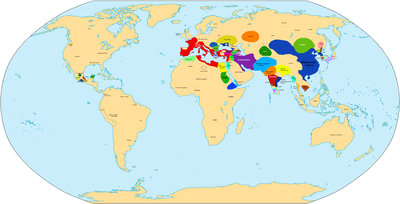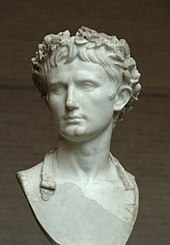

| Millennium |
|---|
| 1st millennium BC |
| Centuries |
| Timelines |
| State leaders |
| Decades |
| Categories: |
|
Births – Deaths Establishments – Disestablishments |
|
|



The 1st century BC, also known as the last century BC and the last century BCE, started on the first day of 100 BC and ended on the last day of 1 BC. The AD/BC notation does not use a year zero; however, astronomical year numbering does use a zero, as well as a minus sign, so "2 BC" is equal to "year –1". 1st century AD (Anno Domini) follows.
In the course of the century, all the remaining independent lands surrounding the Mediterranean Sea were steadily brought under Roman control, being ruled either directly under governors or through puppet kings appointed by Rome. The Roman state itself was plunged into civil war several times, finally resulting in the marginalization of its 500-year-old Roman Republic, and the embodiment of total state power in a single man—the Roman emperor.
The internal turbulence that plagued Rome at this time can be seen as the death throes of the Roman Republic, as it finally gave way to the autocratic ambitions of powerful men like Sulla, Julius Caesar, Mark Antony and Octavian. Octavian's ascension to total power as the emperor Augustus is considered to mark the point in history where the Roman Republic ends and the Roman Empire begins. Some scholars refer to this event as the Roman Revolution. The birth of Jesus, the central figure of Christianity, took place around the close of this century.
In the eastern mainland, the Han dynasty began to decline and the court of China was in chaos in the latter half of this century. Trapped in a difficult situation, the Xiongnu had to begin emigration to the west or attach themselves to the Han.
















See: List of sovereign states in the 1st century BC.
| Authority control databases: National |
|
|---|